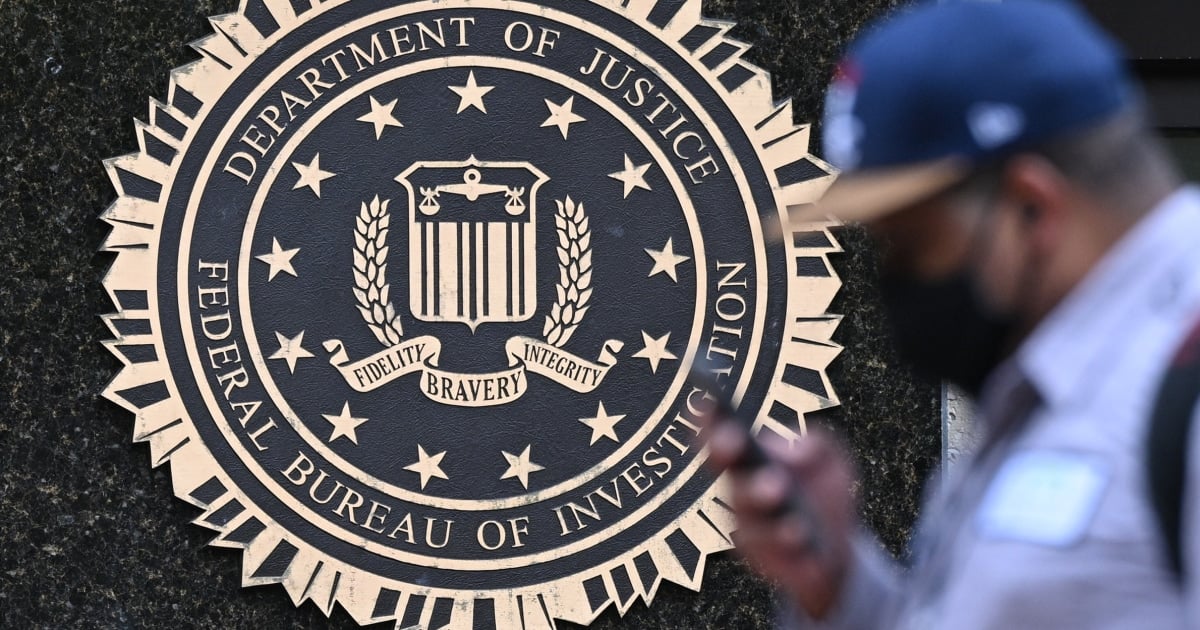- cross-posted to:
- [email protected]
- cross-posted to:
- [email protected]
Oh gee, forcing companies to leave backdoors for the government might compromise security, everyone. Who’d have thunk it? 🤦
They knew, they were putting backdoors when they needed them.
Now the new administration will take half of the blame in public opinion (that’s how this works) and also half of the profits, so they won’t investigate too strictly those who’ve done such things.
But also words don’t cost anything. They can afford to say the obvious after the deed has been done.
I use a one time pad with all of my contacts. I ask them to eat or burn each page when they are used up.
I go one further and also use public/private key pairs that my acquaintances must use to decrypt the scrambled letters I mail them.
All my official communications are in a rotating cypher of Navajo, Hungarian, and Korean.
Good luck decrypting my smoke signal cypher!
Plains sign language described in Serbian phonetically from mandarin characters
I just send back and forth plain gibberish. Good luck breaking that!
I use some decoder ring I found in a cereal box, it’s totally secure.
B̷̡̡̢̧̺̩̝̤̜̪̰͖̻̗͇͓͙͍̦̹̹͚̠̲͔͕̫̤͎̳̱̦̜̖̤͙̎͌͑̂̿̋͐͂̉͜͜͜ͅe̸̺̠̰̋̐͑͒͗͑̑͂̿͑͘͠͝ ̴̡̨̢̨̨̡̯̺̤̝͇̠̯͚͇̰͈͙͍͕̖͕͖̜̹̰̗͙̈̍̄͂́͜ṣ̵̡̞̰͎̝͙͚̘̞̓̊̿̂̉͐͐̐̀̍̂́͋̏́̚͘͠͠ư̴̧̧̨̧̝͙̰̗͓͉͚͇̻͇̝͖̞͙̤͙̞͔̯͈̙̗̰̖̺̼͕͇̗̂̎̐̅͊̔͋̄̿̅̎̍͂̏͘̚ͅṛ̶͙͙͚͖̭̆̄̎̔̾͛̏̈̽͌̎͋̿̈̌̃̃͑̑̏̐̽̎̉́̊̿̆̌̕͜͝͠e̵̛̝̱͓̐̂͊̀̓̑̈́̒̓́̂̿̒̒̔͌̆͌̎͆̓͂̂̏͆̑͜͝͝ ̶̧̧̳̮̬̤̱̯͚̜̜͔̞̰̠̼̩̘͖̹͕̥͔̰͎͖̩̠͇̭̭̺̮̔͊͛̉͐͗͛͌̓̂͐̇̔̑̓̐̇̀̅̿̿̃͛̈́̔̏͛̓͂̏̕̚̕͜͠͠ͅͅͅͅţ̵͔͂̋͌̋͊͗̇ơ̷̘̱͙̝͖͍̪̗̮̫͉͖̪͉̯͙͛̋̾̑͛̇́̑̒̓͐̀̇̓͒̾͛͆̾͗̒̕̚͘͜͝ ̶̧̡̢̭̥͚̱̲̮͙̠̼͉͖̞̩̞̰̠͍̭̭͖͖̻̜͖͇̬͎̮͙̦͗͌̈̌̍̔̋̔̈́̈́̃̍̓͌͒̉̓͐̓̏̓̃̇̅́̐̃̂̚̕͜͝͝d̸̢̨̢̧̢͔͚̼̩̮͖̭̥̮͓̭͇͖̞̰̞̰̋̓̊̈́̈̐̄̆͊̈͑̓̉͝͠ͅŗ̵̲͓̠̮͉̹͍̰̟̘̄̈́̈́̂̀̆͗̔̓̔̐̀̍̓̄̾̋͋̆̈́̓͐͊͒͋͂̓̽͌̂̊͂̔͋̓͌͐̈́̓͠͝ĩ̴̛̛̝̹͓͚̦̱̰̫̌̋͌̏̒́̇̂̅̎̄͒̏̎̈͊͊̽͘̕͜͝͝͝͠n̴̨̡̡̛͚͖̼̖̦͔̬̩̝̞͔̥͖̫̮͎̻͔̪͍͖̣̻̯͉̝̜͓̐̏̾̋̂͛́̍̄̿̔͛̉̾̏̆̍͋͒̂́̽̆͐̋̈͆̊̈̈́̽̔̏̏̎̕̚͘̚͠k̴̡̭̙̼̻̟͔̏̂ ̵̨͓̺̲͇͔̪͇͓̥̰͈̲͊́̂́͋̊̀̾̌͋̉͑̍̿̆̊͐͆̏̑̑͛̾̀̀̏͆̽́͝͠ỵ̶̡̝̺̙͇̪̮͚̣̓̍̐̄̉̇̀͋̔̀̂͒̾̋͘ǫ̴͇̝̤͕̮̺̦̼̪̯̟̼̳͙̼̃̈́́͗̓̊͑́̾̈́͘̕͜͝͠ͅͅų̷̢̛̭̟̭̖̟͇̪̦̪̳̯̟̬͉̬͉͎̫͎̮̜̠͔̝̜̭̪̤͆̆͋̉̆̓̽̋̀̆̌͝r̵̨̡̳͈̝͈̖͈̻̺̮͖̻͓͓͇̩͖̬̣̪͙̗̥̯̍̍͂͂́̑ͅ ̷̢̧̢̧̛̛̖̹͉̳͚̞̟̻̮̟͙̥̥͓͙̻̩̙̈̓͆͌̈́͊́̈́̎̑͗̑̆̀̈́͆̏ͅƠ̴̛̛̱̰̬̲̼̹̬̰̮͓̜̐̔̈́̾̓͆̔͂̂͂̂̓̏̾͐͌͘̕͘͝͝͝v̴̛̤̝̹͙̩͌̾̾̒͋͐͂̍̽̈́͛̎̆̋̓̔̀́̍͑͌͌͂͆̈̚̚̚͘͜͝͝ͅå̶̡̢̹̻͙͗͒̌̓̑̋̂̉̿̌̋͋̆͋͋̈́̋̎̀͝͝ĺ̶̡̨̨̨̛̻͙̘̖͍̥̝̺͔͙̱̼͙̱̀͌̃̍́͊̉͑̐ͅt̶̡̛͎͕̥͉̙̰̫̲̺̩̘̜̖͔̝̜̤̮͙̳̻̮̠̦́̌͌̍̑̃̿̔͒͗̑̏̎̿̉̀̀͊̽̃̽͌͆̏͗͗̋̈́̔̉́̒͗̑̊͜͝ͅį̴̡̢̡̪̥͉̩̯͎̩̤̺̙̩̳̘͓̣̮̰͔̯̘̰̖̪̻͉̣̖̬̩͉̦̃̂̍͜ͅͅņ̵̡̢̧̢̯̠͍͖͔̬̜̥̗̜͈̮͖̗̺̳̱̣̟̦̗͉̮̥̏̿͒̏͆̔̀͐̉̀͗͋͐͌͒̀́̿́͗͂́̏̂͊̑̅͝͝͝͝ȩ̶̨̡̨̫͉̱͉̦̫͇̪̼̰̺̩̘̼̬̝̘̥͖͎̬̺̀̓͋̄̂̉͝͝
The same people who want to get rid of encryption
Sounds bad I guess, but the USA has been spying on us for a long time now. Is the bad part that it’s China?
Bets on this being directly related to back doors that US spy agencies demand be installed?
RTFA
The third has been systems that telecommunications companies use in compliance with the Commission on Accreditation for Law Enforcement Agencies (CALEA), which allows law enforcement and intelligence agencies with court orders to track individuals’ communications. CALEA systems can include classified court orders from the Foreign Intelligence Surveillance Court, which processes some U.S. intelligence court orders.
So, bet won?
Wouldn’t surprise me. “We’re doing this to be helpful to you!” is actually moustached disney villain behavior.
^ similar to the prisoners with cats gimmick. “look how nice we’re being to our prisoners” is actually “stop yelling at your bunkmate or we’ll take away your cat”
Yes. Wars happen. Even corrupt politicians are nicer when their control base is inside the country.
When a whole nation’s communications are intercepted by another entity, yes, the bad part is that it’s another nation. Especially an adversarial one.
This is not about individuals’ personal privacy. It’s about things that happen at a much larger scale. For example, leverage for political influence, or leaking of sensitive info that sometimes finds its way into unsecured channels. Mass surveillance is powerful.
Like Signal?
Yes, like Signal!
Which does not only use end-to-end encryption for communication, but protects meta data as well:Signal also uses our metadata encryption technology to protect intimate information about who is communicating with whom—we don’t know who is sending you messages, and we don’t have access to your address book or profile information. We believe that the inability to monetize encrypted data is one of the reasons that strong end-to-end encryption technology has not been widely deployed across the commercial tech industry.
Source: https://signal.org/blog/signal-is-expensive/
I haven’t verified that claim investigating the source code, but I’m positive others have.
No, BPs are a risk. Better to avoid apps that require phone numbers
Or alternatively, Molly
I read Molly is forked from Signal. Can I message Signal users from Molly, or do all parties need Molly?
Molly connects to Signal’s servers, so you can chat with your Signal contacts seamlessly.
From my experience parties are always better with Molly
Guess that confirms that E2EE is effective against these backdoors.
We’ve long had NSA slides that showed Tor and e2ee solutions as “disastrous” to their visibility.
Just stop using your electronic devices. Not like they don’t all have monitors built in already anyway. Every connected device could be sending screenshots home and we’d never know. I mean, I guess you could use something like Wireshark to monitor your home network, but something tells me nowadays there are ways around even that. I’m not a certified network tech or even a script kiddie, but I don’t trust my tech as far as my dog can throw it. I just try to secure through obfuscation as much as possible. Everyone thinks I have carbon monoxide poisoning, but it’s a small price to pay for peace of mind - even a small one.
Do what the Germans did in ww1 when they knew their diplomatic code was broken but couldn’t change it. They put the important stuff in plain sight and treated it like junk mail and encoded the boring stuff.
There’s really no law against using geofencing, just laws allowing admissability. Have a 2nd phone without a SIM and use it at hotspots for encrypted stuff, leave the main one at home if you’re feeling fat and sassy
I’m just saying that, unless you built the device you’re using, and you know what every component does, and you know what it’s doing when, and you know it wasn’t manufactured by a foreign state-owned manufacturer with a penchant for putting spy chips in their devices, then you can’t truly trust anything you do on it, encrypted or not. It doesn’t really matter, if the software is being encrypted by backdoored hardware.
Yeah, we’re in agreement, but also, if any device can be traced back to you in any way (ie: cell phone bill), it’s 100% sus, regardless of what you have installed or what preventative measures you’ve taken. If you ping some towers there’s a non-zero chance someone notices, and you’d be better off not having some easily-tracked signature behind it.
It’s basically just an addendum, leave all personal devices at home when doing anything remotely sketchy, or for the sake of privacy, but a burner phone off ebay with no sim in airplane mode is about as hard to track as anything
Oh yeah for sure. Gang gang.
You & others might be interested in this:
https://insights.sei.cmu.edu/library/field-stripping-a-weapons-system-building-a-trustworthy-computer-video/
and maybe this:
https://en.wikipedia.org/wiki/Intel_Management_Engine
Hey you guys remember that big AT&T breach recently?
Interpretation - the NSA can now crack all common encryption methods, so let’s disadvantage our adversaries at no real cost to us.
I vaguely recall Bruce Schneier saying that there is good evidence that the NSA cannot crack certain encryption methods. At the time, RSA was on the list. Maybe common methods mean roll-your-own corporate encryption, but it’s my understanding that GNUpg and similar software are safe.
Hear me out, maybe we should update pots and sms to have optional end-to-end encryption for modern implementations as well…Optional as backwards compatible and clearly shown as unencrypted when used that way to be clear.
Att won’t make money off that unless they offer it as a paid service. No reason to give that away for free and the other cell carriers can just pay off (bribe with campaign contributions) legislators to understand encryption is “too costly to implement at such a scale”
FBI: Here’s some communications security tips from the Sureños: tell someone you’ll meet them and leave your phone in a nightstand
What i read [and corrected] from the article :
“The hacking
campaign[group], nicknamed [ by Microsoft ] Salt Typhoonby Microsoft,
[ this actual campaign of attacks ] is one of the largest intelligence compromises in U.S. history, and not yet fully remediated. Officials in a press call Tuesday [ 2024-12-3 ] refused to set a timetable for declaring the country’s telecommunications systems free of interlopers. Officials had previously told NBC News that China hacked AT&T, Verizon and Lumen Technologies to spy on customers.”Thanks I thought from reading this maybe Salt Typhoon was the codename for the next version of windows.
No, that’s Salty AI
Everybodies aunt at thanksgiving:
“I should be fine. I only trust the facebook with my information. Oh, did I tell you? We have 33 more cousins we didn’t know about. I found out on 23andme.com. All of them want to borrow money.”
End-to-end encryption is indispensable. Our legislators (no matter where we live) need to be made to understand this next time they try to outlaw it.
“So it’s like a filter on the tubes?” - Our legislators
Ew.
Think of it like this:
- no encryption - sending a postcard
- client to sever encryption - dropping off the postcard at the post office instead of the mailbox
- end to end encryption - security envelope in the mailbox
- read receipts - registered mail
Hopefully you’re less wrong now Mr/Mrs legislator.
“I didn’t have my pills today. Can you explain that to my staffer? They’ll make a note of it.”
“you wouldn’t put a dump truck full of movies on a snowy road without chains on the tires would you?”
I’m a cryptographer in Florida, and now I’m more confused
The US Govt 5 years ago: e2e encryption is for terrorists. The govt should have backdoors.
The US Govt now: Oh fuck, our back door got breached, everyone quick use e2e encryption asap!
The Australian government tried to straight up ham encryption some years ago.
I laughed so much at that. Encryption is literally just long complicated numbers combined with other long complicated numbers using mathematical formulae. You can’t ban maths.
If I remember correctly, there’s also a law in Australia where they can force tech companies to introduce backdoors in their systems and encryption algorithms, and the company must not tell anyone about it. AFAIK they haven’t tried to actually use that power yet, but it made the (already relatively stagnant) tech market in Australia even worse. Working in tech is the main reason I left Australia for the USA - there’s just so many more opportunities and significantly higher paying jobs for software developers in Silicon Valley.
I laughed so much at that. Encryption is literally just long complicated numbers combined with other long complicated numbers using mathematical formulae. You can’t ban maths.
Now laugh at banning chemistry and physics (guns and explosives and narcotics). Take a laugh at banning murder too - how do you ban every action leading to someone’s death?
and the company must not tell anyone about it
Any “must not tell” law is crap. Unless you signed some NDA knowing full well what it is about.
Any kind of “national secret disclosure” punishment when you didn’t sign anything to get that national secret is the same.
It’s an order given to a free person, not a voluntarily taken obligation.
That said, you can’t fight force with words.
You can’t ban maths.
tell me about it; it tried that against my teacher in middle school
You can try, and in the US, we have export restrictions on cryptography (ITAR restrictions), so certain products cannot be exported. But you can print out the algorithm and carry it on a plane though, so I’m not sure what the point is…
More like 23 years ago when the Patriot Act was signed, and every time it has been re-authorized/renamed since. Every President since Bush Jr. is complicit, and I’m getting most of them in the previous 70-ish years (or more) wish they could’ve had that bill as well.
Different parts of the government. Both existed then and now. There has for a long time been a substantial portion of the government, especially defense and intelligence, that rely on encrypted comms and storage.
FBI has definitely always been anti-encryption
I have never understood why electronic communications are not protected as physical mail
Lobbying as well as developmental issues I would assume. I’m no real developer just yet but I’d imagine creating robust security protocols is time-consuming and thinking of every possible vulnerability is not entirely worth it.
No, security is pretty easy and has been for decades. PGP has been a thing since 1991, and other encryption schemes were a thing long before. ProtonMail uses PGP and SMTP, the latter of which predates PGP by about a decade (though modern SMPT with extensions wasn’t a thing until 1995).
So at least for email, there’s little technical reason why we couldn’t all use top of the line security. It’s slightly more annoying because you need to trade keys, but email services could totally make it pretty easy (e.g. send the PGP key with the first email, and the email service sends it with an encrypted reply and stores them for later use).
The reason we don’t is because servers wouldn’t be able to read our email. The legitimate use case here is searching (Tuta solves this by searching on the client, ProtonMail stores unencrypted subject lines), and 20 years ago, that would’ve been a hardship with people moving to web services. Today, phones can store emails, so it’s not an issue anymore, so it probably comes down to being able to sell your data.
Many to many encryption is more complicated (e.g. Lemmy or Discord), so I understand why chat took a while to be end to end encrypted (Matrix can do this, for example), but there are plenty of FOSS examples today, and pretty much every device has encryption acceleration in the CPU, so there’s no technical reason why it’s impractical today.
The reason it’s not uniquitous today is because data is really valuable, both to police and advertisers.
Because physical mail can be easily opened with a warrant. Encryption can be nigh impossible to break. The idea of a vault that cannot be opened no matter how hard you try is something that scares law makers.
Because the USA has been a broken fascist husk ever since the red scare and has been in slow decline ever since.



















